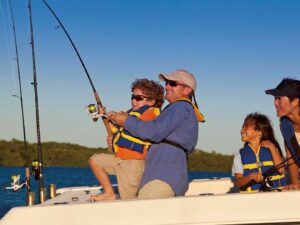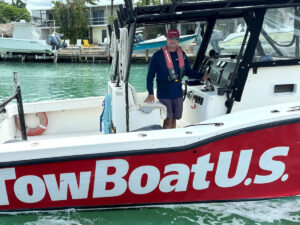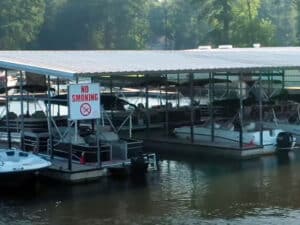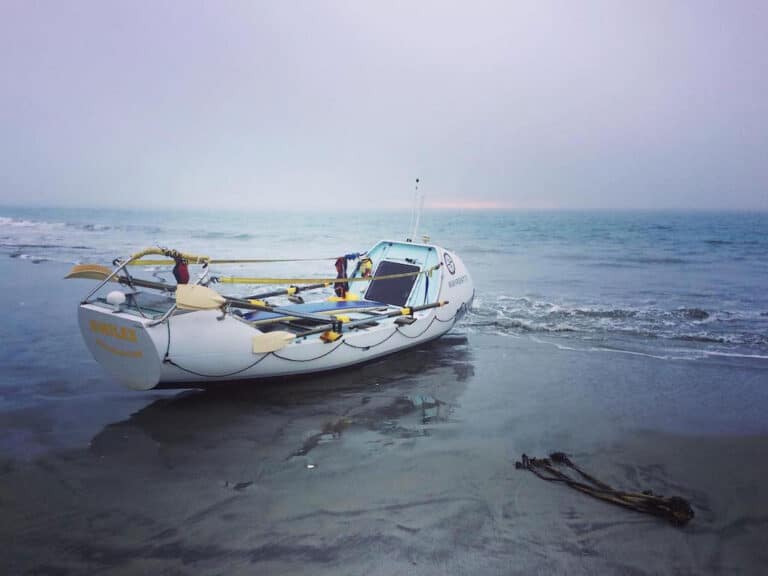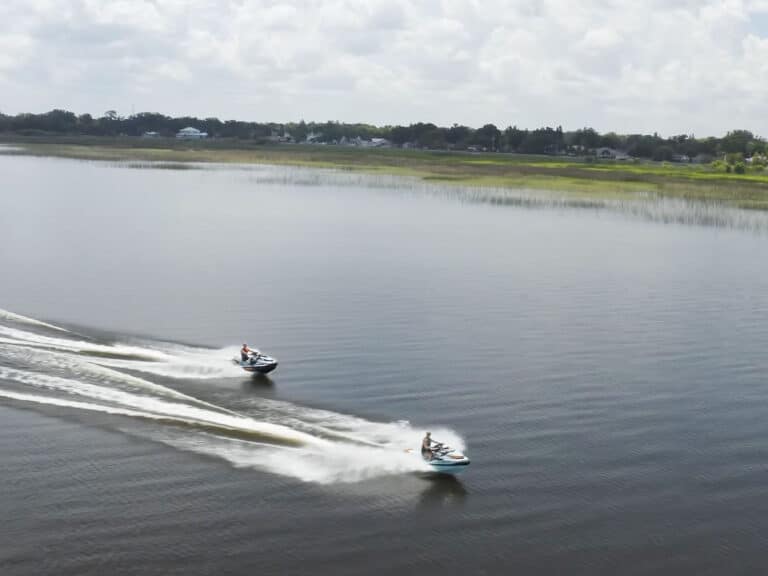
Anglers down in the Gulf remember this tragic event: three friends, two of them NFL players, lost after their boat capsized during a fishing trip in March 2009. A fourth was rescued after clinging to the hull in 63-degree water for almost two days. As an offshore angler, you would never want to find yourself unprepared in such a desperate situation. If fishing takes you far offshore make sure you know your limits.
Get advanced training. Boating education is widely available and includes classroom and online training offered through the U.S. Coast Guard Auxiliary, United States Power Squadrons® and state boating agencies. Advanced training in navigation, seamanship, boat handling and weather are important to know before you venture into open waters. Local knowledge and recommendations from experienced captains who run offshore fishing charters can be valuable as well.
Experienced boaters conduct a simple risk assessment before each trip, considers the capacity of the boat, the experience of the crew and any potential hazards that may arise. Of particular importance to offshore anglers is the weather, because it can change dramatically in the time it takes a small vessel to transit between home port and favorite fishing grounds. If any value in a risk assessment is too high, a boat trip offshore should be canceled or modified.
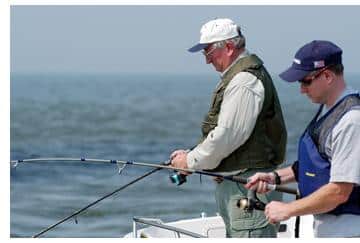
Filing a float plan – like a pilot’s flight plan – is always a good idea. Leave a note with family members, or the marina office listing your boat’s name, passengers’ names, time of departure, destination with coordinates, and expected time of return. A float plan can be a tremendous aid in search and rescue should you fail to appear at the appointed hour.
Accidents are possible even with the best preparation, however, so here’s your emergency-gear shopping list:
Get yourself an EPIRB (Emergency Position-Indicating Radio Beacon). EPIRBs are available in a variety of models and can be manually activated or set to automatically activate when released from their storage bracket. Modern EPIRBs not only provide a homing signal for rescue but they can provide exact GPS coordinates. The job of locating a small boat in the vastness of the Great Lakes or open sea can be overwhelming; an EPIRB can make the difference between days of searching or a speedy rescue.
Provision your boat with life jackets that you and your passengers will wear. Modern life jackets – in contrast to the traditional orange “horse collar” styles – are unobtrusive and can be comfortable enough to wear throughout an offshore voyage. A life jacket that is worn at all times helps protect a boater who is thrown unexpectedly into the water or is too injured to swim. Bright colors and personal signaling devices – such as a mirror, whistle, or day/night flare in the pocket – aid in recovery, too. Larger boats can even carry a small life raft that can automatically deploy in the event of capsizing.
Never depend upon cell phones for communication offshore as cell signals rarely reach more than a few miles from the coast. Instead, carry a good marine-band VHF-FM radio, and know how to use it.
Don’t forget a set of tools and basic replacement parts for the boat. Spare hoses and clamps, extra “V” belts, spark plugs and pump impellers are all good to have on board. Breaking down far from shore can put you in as much jeopardy as heavy weather or a boating accident. For that reason, carry enough emergency food and water to sustain you and your passengers for several days if rescue is delayed.
Finally, remember that federally mandated requirements for safety equipment – such as visual distress signals and life jackets – are minimums. Considering the additional hazards that may be present far from shore, be sure to prepare.
While it can’t be said for certain that these preparations or carrying additional gear would save lives in an offshore emergency, there is no question that responsible behaviors such as acquiring boating education, conducting a risk assessment, filing a float plan, and carrying well-maintained equipment, like an EPIRB, can add to your safety no matter when or where you boat.
Assess your risks before setting out…
Consider the risks presented by the following factors and any others that may be present in your particular situation; if the risk value of any parameter is too high, the trip should be called off or modified.
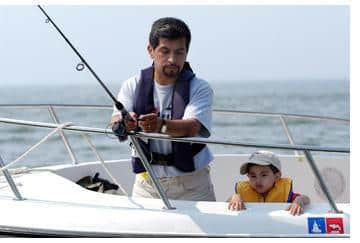
- Weather (current, forecast, inland, offshore)
- Overall experience and knowledge of the boat operator
- Experience and knowledge of passengers
- Vessel capacity
- Emergency equipment
- Destination
…and consider additional gear
Federally mandated requirements for safety equipment – such as visual distress signals and life jackets – are minimums. Considering the additional hazards that may be present far from shore, be sure to prepare.
- EPIRB (Emergency Position Indicating Radio Beacon)
- Visual distress signals (flares, rockets)
- Life jackets designed for offshore/heavy weather use
- Personal signaling devices (mirrors, flares, whistles) attached to life jackets
- Inflatable life raft/life float
- VHF-FM marine band radio
- Parts and tools for emergency repairs
- Emergency food and water, enough for each passenger for several days
The U.S. Coast Guard is asking all boat owners and operators to help reduce fatalities, injuries, property damage, and associated healthcare costs related to recreational boating accidents by taking personal responsibility for their own safety and the safety of their passengers. Essential steps include: wearing a life jacket at all times and requiring passengers to do the same; never boating under the influence (BUI); successfully completing a boating safety course; and getting a Vessel Safety Check (VSC) annually from local U.S. Coast Guard Auxiliary, United States Power Squadrons(r), or your state boating agency’s Vessel Examiners. The U.S. Coast Guard reminds all boaters to “Boat Responsibly!” For more tips on boating safety, visit www.uscgboating.org.

